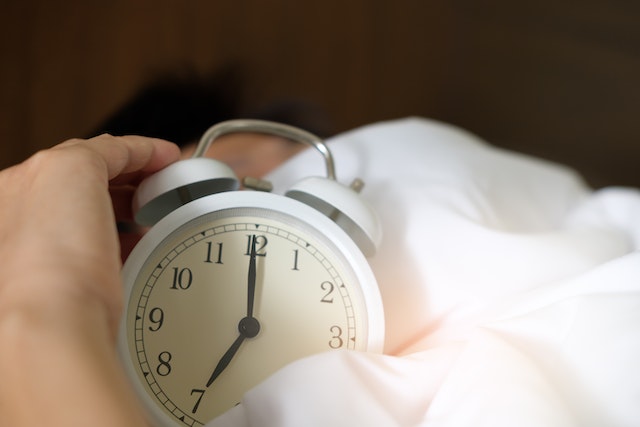
| 双语新闻 Bilingual News | 双语对照阅读 分级系列阅读 智能辅助阅读 在线英语学习 |

| 双语新闻 Bilingual News | 双语对照阅读 分级系列阅读 智能辅助阅读 在线英语学习 |
| [英文] [中文] [双语对照] [双语交替] [] |

| A new study outlines how insomniacs might make their condition even more tiresome: clock-watching (or time-monitoring behavior (TMB), to be technical). It seems this can aggravate insomnia, increase frustration, and lead to higher use of sleeping aids. |
| It's a sort of negative feedback loop, the researchers found. TMB worsens insomnia and its associated annoyances, leading to more clock-watching and so on. |
| "People are concerned that they're not getting enough sleep, then they start estimating how long it will take them to fall back asleep and when they have to be up," says clinical psychologist Spencer Dawson from Indiana University Bloomington. |
 |
| "That is not the sort of activity that's helpful in facilitating the ability to fall asleep; the more stressed out you are, the harder time you're going to have falling asleep." |
| Dawson and his colleagues looked at sleep-specific data from 4,886 patients who completed a questionnaire at a sleep medical center in Arizona: the severity of their insomnia, the time spent monitoring their behavior while trying to sleep, and their use of both over-the-counter and prescription sleep medications. |
| "We found time monitoring behavior mainly has an effect on sleep medication use because it exacerbates insomnia symptoms," says Dawson. |
| TMB wasn't the only driver for medication, however. Frustration with not being able to sleep, the researchers noted, is just as important when it comes to dealing with insomnia. |
 |
| The researchers recommended specific therapies – cognitive restructuring or addressing emotional processing – to further alleviate frustration, thus further alleviating the use of sleep medications. |
| As well as recommending future studies into TMB in even larger groups of people over more extended periods of time, the researchers suggest that taking measures to remove the temptation of checking the time might be helpful. |
| "One thing that people could do would be to turn around or cover up their clock, ditch the smart watch, get the phone away so they're simply not checking the time," says Dawson. |
OK阅读网 版权所有(C)2017 | 联系我们